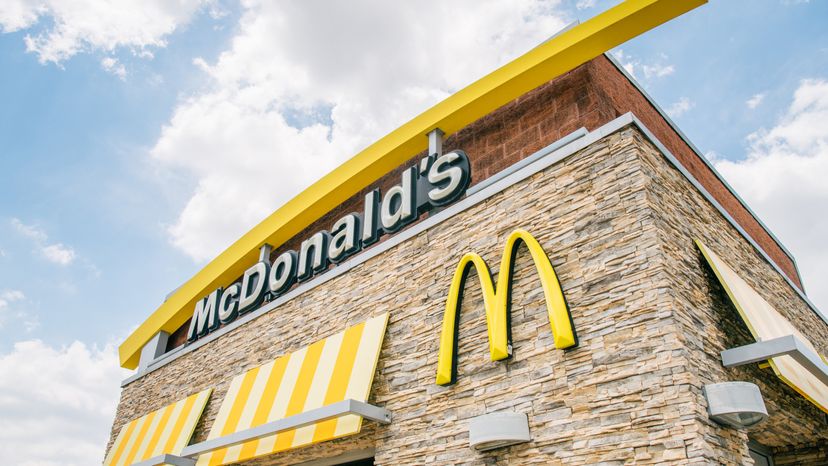Imagine that you're opening your own McDonald's. To do this, you have to buy a McDonald's franchise. In order to qualify for a conventional franchise, you have to have $250,000 (not borrowed). Your total costs to open the restaurant, however, will be anywhere from $685,750 to $1,504,000, which goes to paying for the building, equipment, etc. Forty percent of this cost has to be from your own (non-borrowed) funds.
You'll pay an initial franchise fee of $45,000 directly to McDonald's. The other costs go to suppliers, so this is the only upfront fee you pay to McDonald's. Then, you'll go through a rigorous nine-month training period where you'll learn about the McDonald's way of doing things -- things like their standards for quality, service, value, formulas and specifications for menu items, their method of operation, and inventory control techniques. You'll have to agree to operate the restaurant from a single location, usually for 20 years, following their guidelines for decor, signage, layout and everything else that makes McDonald's McDonald's.
Once you've completed training and are ready to go, McDonalds will offer you a location they've already developed. The exterior of the building will be complete, but you will have to take care of interior additions such as kitchen equipment, seating and landscaping. You'll get constant support from a McDonald's Field Consultant, who can advise you on details and will visit regularly. You'll pay McDonald's a monthly fee of 4 percent of your sales, and either a flat base rent or a percentage rent of at least 8.5 percent of your sales. How much money you make depends on many things, including the location and its popularity, the efficiency of your operating costs, and your ability to manage and control the business.
Think of franchising as paying someone for his or her business strategy, marketing strategy, operations strategy, and the use of his or her name. That's pretty much what franchising is -- you are establishing a relationship with a successful business so you can use its systems and capitalize on its existing brand awareness in order to get a quicker return on your own investment. You are using its proven system and name, and running it by its rules.
Are you still your own boss? In some respects, no. You still have to answer to someone else and follow his or her direction. You don't really own the business; you own the assets you've purchased in order to establish the business.

